Fleurs du Mal Magazine


Or see the index

.jpg)
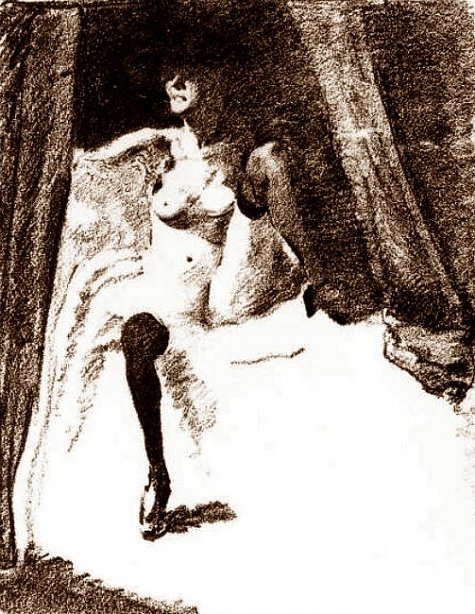

.jpg)
.jpg)
Galerie Anita Berber – 8
Anita Berber (June 10, 1899 – November 10, 1928) was a German dancer, actress and writer. Anita Berber was painted by many artist, among them Otto Dix.
Her lover was dancer Sebastian Droste. In 1922, Berber and Droste published a book of poems, photographs, drawings: Kokain. Berber’s cocaine addiction and bisexuality were matters of public chatter. She was allegedly the sexual slave of a woman and the woman’s 15-year-old daughter. She could often be seen in Berlin’s hotel lobbies, nightclubs and casinos, naked apart from a sable wrap and a silver brooch filled with cocaine. Besides being a cocaine addict, she was an alcoholic.
Anita Berber died of tubercolosis, at the age of 29, on November 10, 1928 in a Kreuzberg hospital and was buried at St. Thomas cemetery in Neukölln.
In 1987 film Rosa von Praunheim made a film titled: Anita – Tänze des Lasters.
fleursdumal.nl magazine – magazine for art & literature
More in: Anita Berber, Anita Berber, Berber, Berber, Anita, DANCE & PERFORMANCE
.jpg)
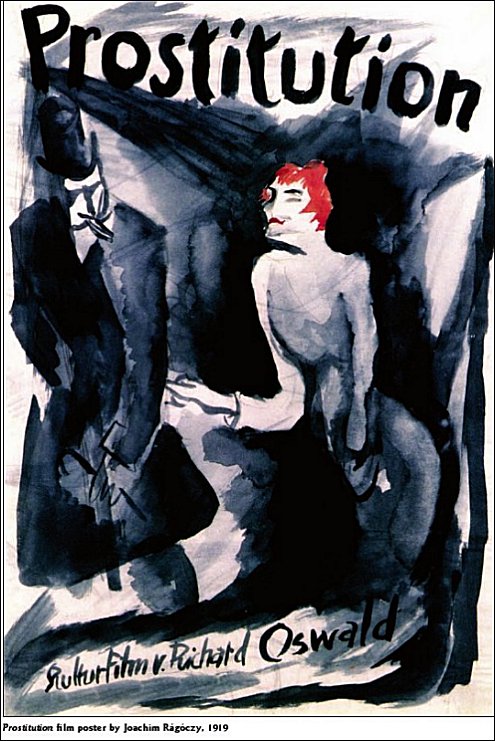

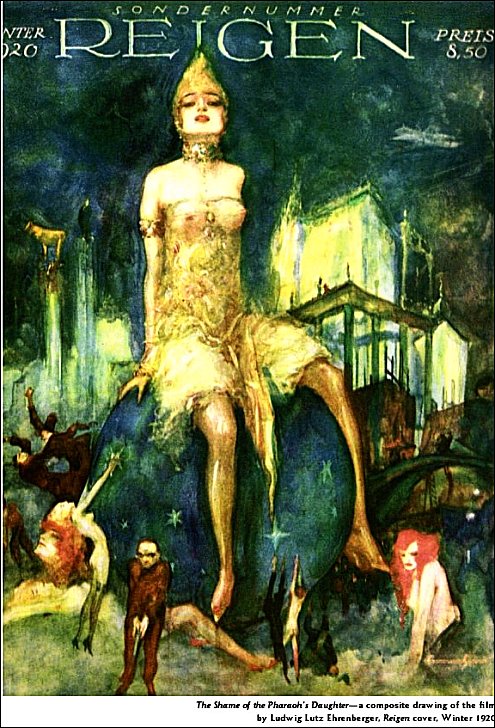
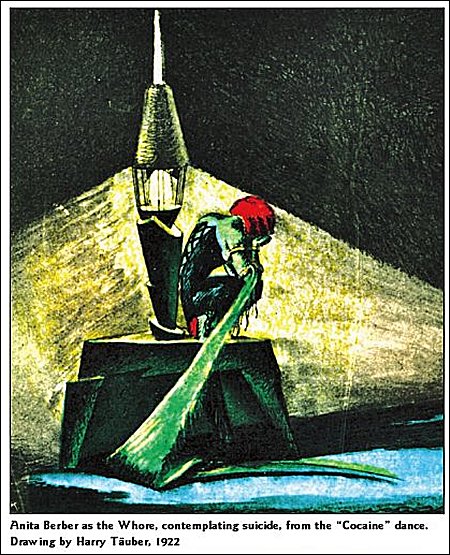
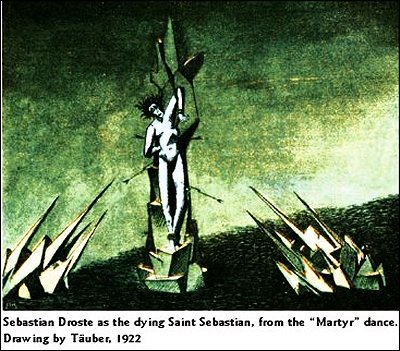
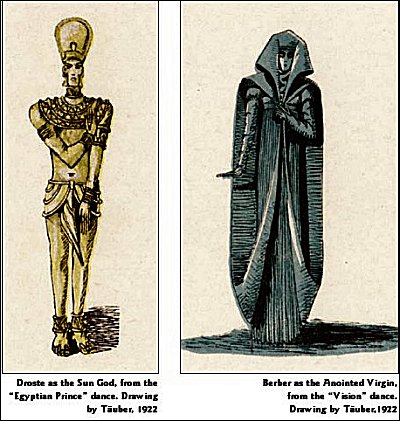

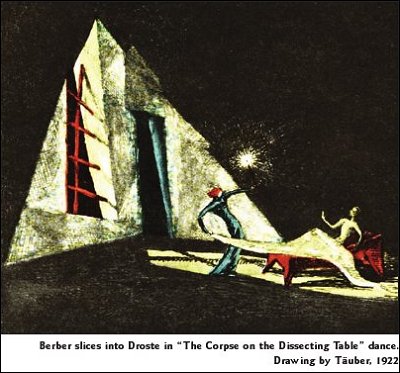
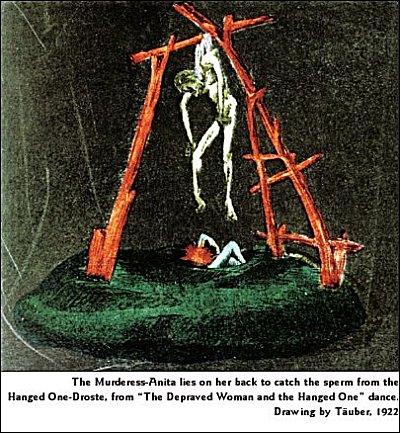
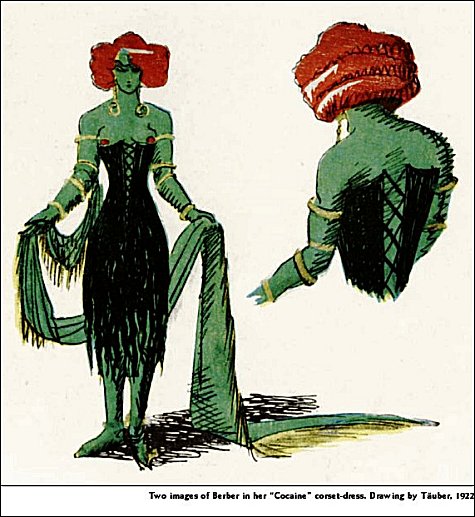
Galerie Anita Berber – 7
fleursdumal.nl magazine
More in: Anita Berber, Anita Berber, Berber, Berber, Anita, DANCE & PERFORMANCE
.jpg)
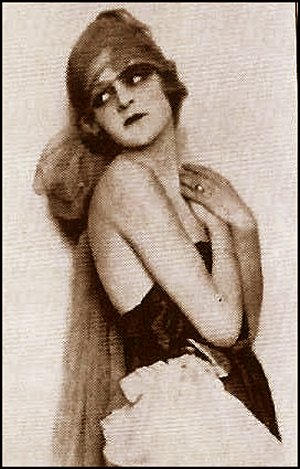



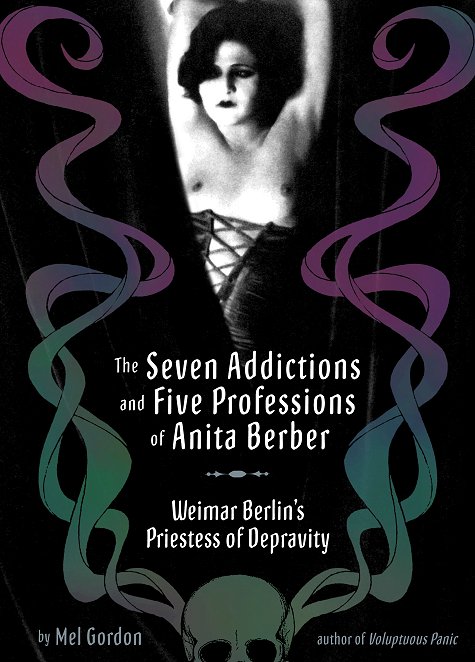
Galerie Anita Berber – 6
Anita Berber (June 10, 1899 – November 10, 1928) was a German dancer, actress and writer. Anita Berber was painted by many artist, among them Otto Dix.
Her lover was dancer Sebastian Droste. In 1922, Berber and Droste published a book of poems, photographs, drawings: Kokain. Berber’s cocaine addiction and bisexuality were matters of public chatter. She was allegedly the sexual slave of a woman and the woman’s 15-year-old daughter. She could often be seen in Berlin’s hotel lobbies, nightclubs and casinos, naked apart from a sable wrap and a silver brooch filled with cocaine. Besides being a cocaine addict, she was an alcoholic.
Anita Berber died of tubercolosis, at the age of 29, on November 10, 1928 in a Kreuzberg hospital and was buried at St. Thomas cemetery in Neukölln.
In 1987 film Rosa von Praunheim made a film titled: Anita – Tänze des Lasters.
fleursdumal.nl magazine
More in: Anita Berber, Anita Berber, Berber, Anita, DANCE & PERFORMANCE
.jpg)
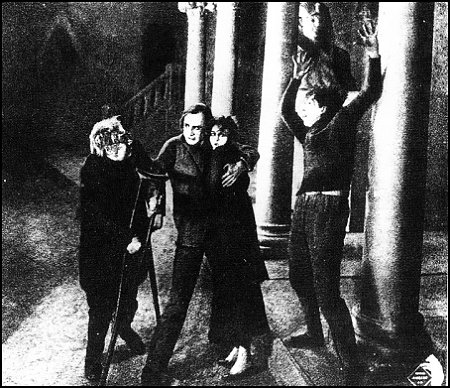


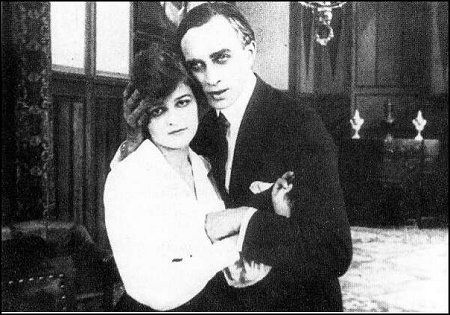
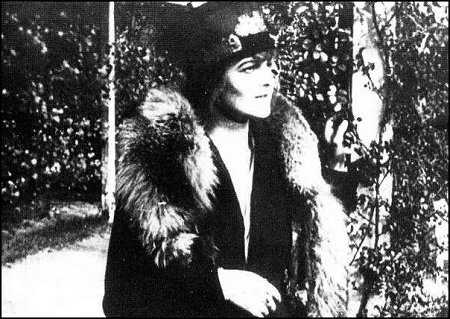

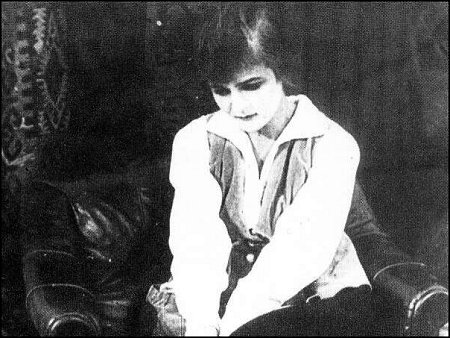
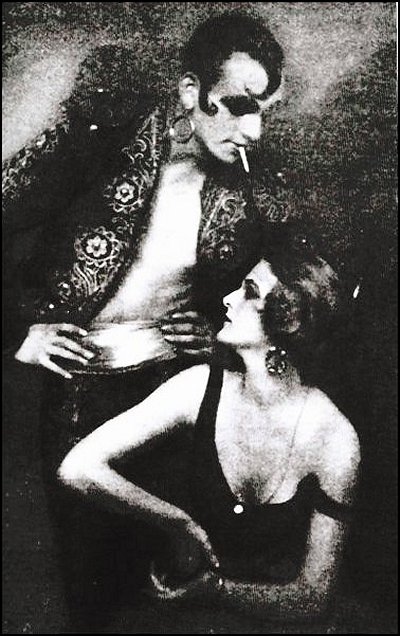
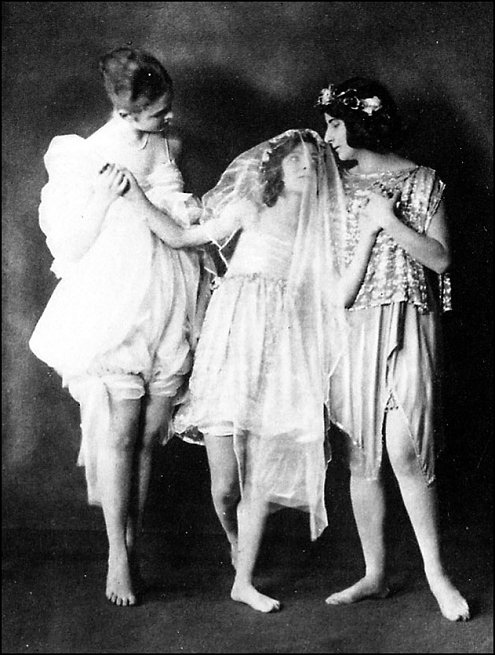
Galerie Anita Berber – 5
(Anita Berber 1899-1928)
fleursdumal.nl magazine
More in: Anita Berber, Anita Berber, Berber, Anita, DANCE & PERFORMANCE
.jpg)

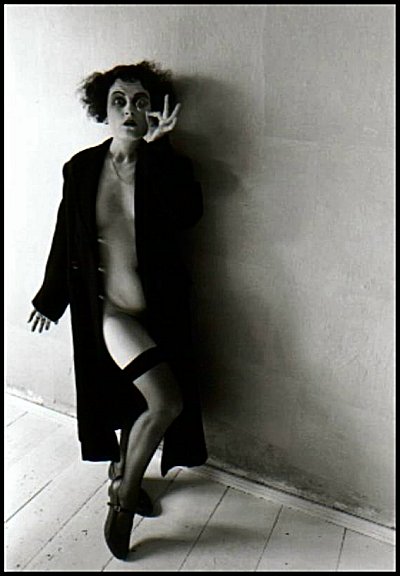
Bridge Markland as Anita Berber in her performance A.B. – Photo: Nina Rücker
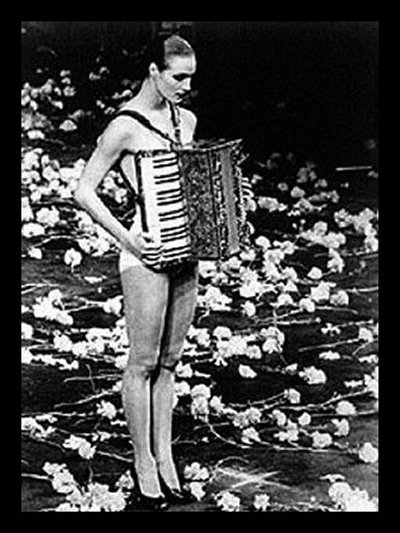

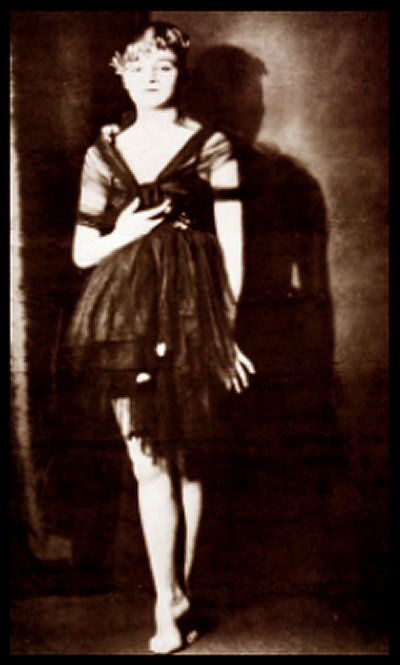

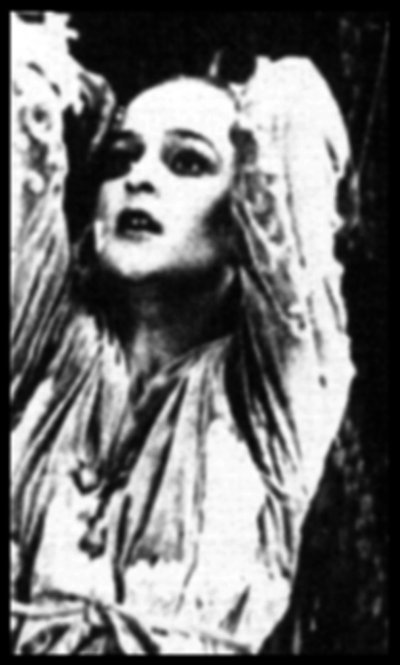
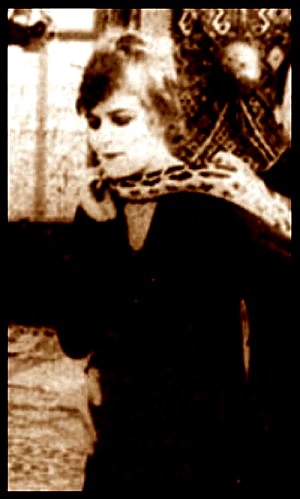
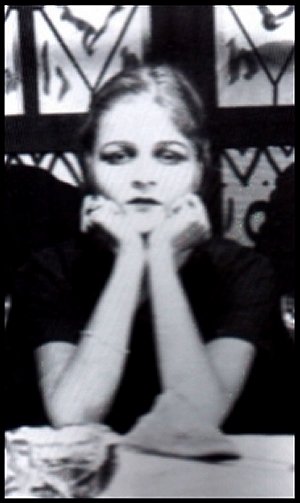
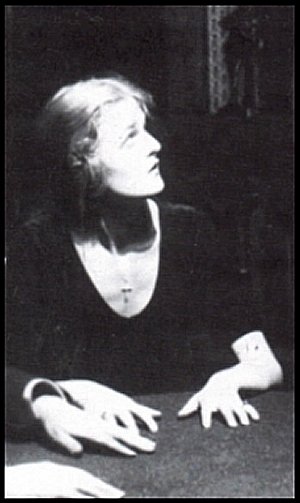
Galerie Anita Berber – 4
fleursdumal.nl magazine
More in: Anita Berber, Anita Berber, Berber, Anita, DANCE & PERFORMANCE
.jpg)
A r t h u r R i m b a u d
(1854-1891)
Les reparties de Nina
LUI – Ta poitrine sur ma poitrine,
Hein ? nous irions,
Ayant de l’air plein la narine,
Aux frais rayons
Du bon matin bleu, qui vous baigne
Du vin de jour ?…
Quand tout le bois frissonnant saigne
Muet d’amour
De chaque branche, gouttes vertes,
Des bourgeons clairs,
On sent dans les choses ouvertes
Frémir des chairs :
Tu plongerais dans la luzerne
Ton blanc peignoir,
Rosant à l’air ce bleu qui cerne
Ton grand oeil noir,
Amoureuse de la campagne,
Semant partout,
Comme une mousse de champagne,
Ton rire fou :
Riant à moi, brutal d’ivresse,
Qui te prendrais
Comme cela, – la belle tresse,
Oh ! – qui boirais
Ton goût de framboise et de fraise,
O chair de fleur !
Riant au vent vif qui te baise
Comme un voleur,
Au rose, églantier qui t’embête
Aimablement :
Riant surtout, ô folle tête,
À ton amant !….
………………………………………………..
– Ta poitrine sur ma poitrine,
Mêlant nos voix,
Lents, nous gagnerions la ravine,
Puis les grands bois !…
Puis, comme une petite morte,
Le coeur pâmé,
Tu me dirais que je te porte,
L’oeil mi-fermé…
Je te porterais, palpitante,
Dans le sentier :
L’oiseau filerait son andante
Au Noisetier…
Je te parlerais dans ta bouche..
J’irais, pressant
Ton corps, comme une enfant qu’on couche,
Ivre du sang
Qui coule, bleu, sous ta peau blanche
Aux tons rosés.
Et te parlant la langue franche – …..
Tiens !… – que tu sais…
Nos grands bois sentiraient la sève,
Et le soleil
Sablerait d’or fin leur grand rêve
Vert et vermeil
………………………………………………..
Le soir ?… Nous reprendrons la route
Blanche qui court
Flânant, comme un troupeau qui broute,
Tout à l’entour
Les bons vergers à l’herbe bleue,
Aux pommiers tors !
Comme on les sent toute une lieue
Leurs parfums forts !
Nous regagnerons le village
Au ciel mi-noir ;
Et ça sentira le laitage
Dans l’air du soir ;
Ca sentira l’étable, pleine
De fumiers chauds,
Pleine d’un lent rythme d’haleine,
Et de grands dos
Blanchissant sous quelque lumière ;
Et, tout là-bas,
Une vache fientera, fière,
À chaque pas…
– Les lunettes de la grand-mère
Et son nez long
Dans son missel ; le pot de bière
Cerclé de plomb,
Moussant entre les larges pipes
Qui, crânement,
Fument : les effroyables lippes
Qui, tout fumant,
Happent le jambon aux fourchettes
Tant, tant et plus :
Le feu qui claire les couchettes
Et les bahuts.
Les fesses luisantes et grasses
D’un gros enfant
Qui fourre, à genoux, dans les tasses,
Son museau blanc
Frôlé par un mufle qui gronde
D’un ton gentil,
Et pourlèche la face ronde
Du cher petit…..
Que de choses verrons-nous, chère,
Dans ces taudis,
Quand la flamme illumine, claire,
Les carreaux gris !…
– Puis, petite et toute nichée,
Dans les lilas
Noirs et frais : la vitre cachée,
Qui rit là-bas….
Tu viendras, tu viendras, je t’aime !
Ce sera beau.
Tu viendras, n’est-ce pas, et même…
Elle – Et mon bureau ?
Arthur Rimbaud, Les reparties de Nina
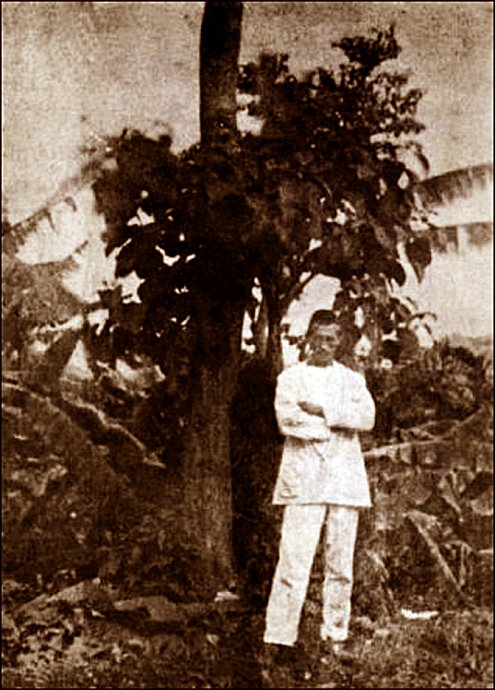
fleursdumal.nl magazine
More in: Archive Q-R, Arthur Rimbaud, Rimbaud, Arthur, Rimbaud, Arthur
.jpg)
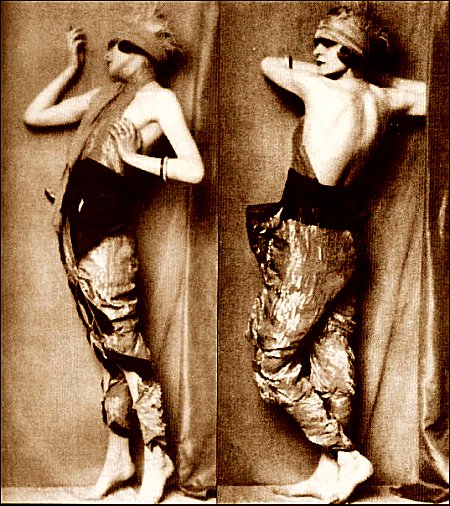
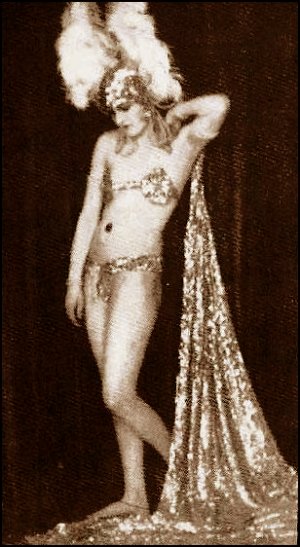
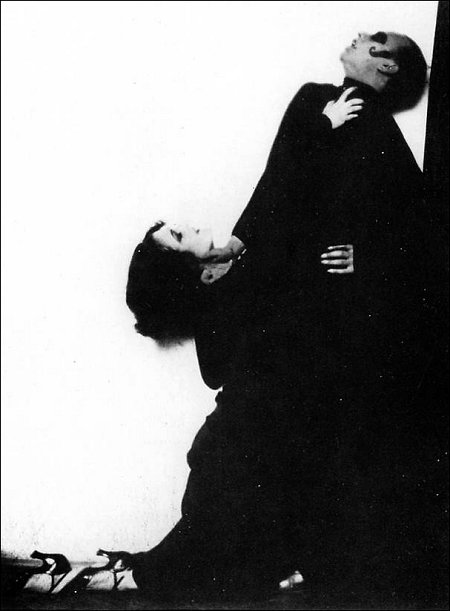

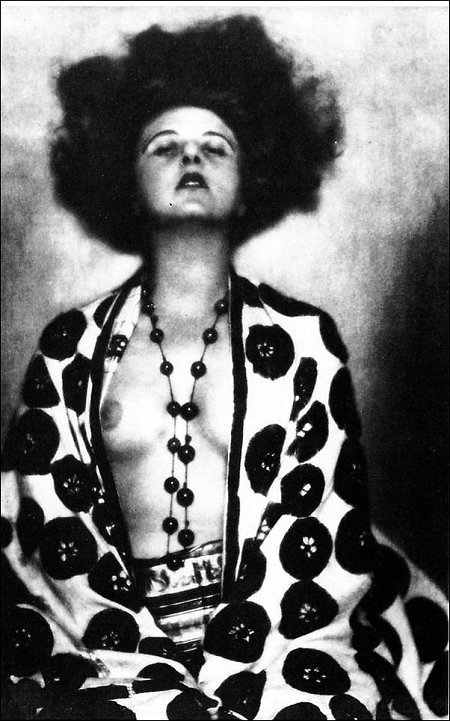
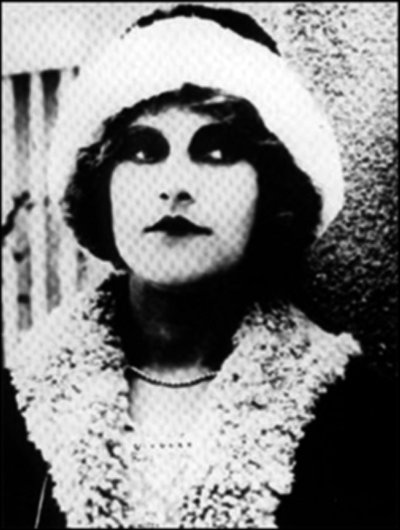
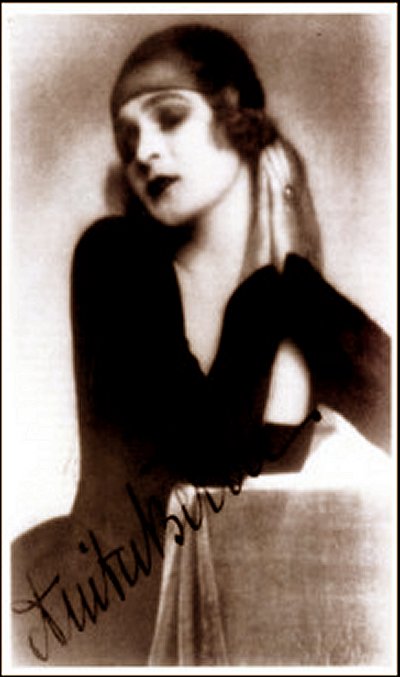


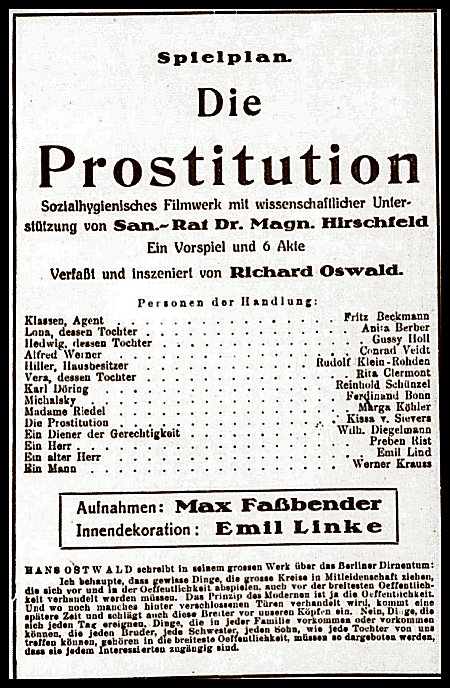


Galerie Anita Berber – 3
Anita Berber (June 10, 1899 – November 10, 1928) was a German dancer, actress and writer. Anita Berber was painted by many artist, among them Otto Dix. Her lover was dancer Sebastian Droste. In 1922, Berber and Droste published a book of poems, photographs, drawings: Kokain.
Berber’s cocaine addiction and bisexuality were matters of public chatter. She was allegedly the sexual slave of a woman and the woman’s 15-year-old daughter. She could often be seen in Berlin’s hotel lobbies, nightclubs and casinos, naked apart from a sable wrap and a silver brooch filled with cocaine. Besides being a cocaine addict, she was an alcoholic.Anita Berber died of tubercolosis, at the age of 29, on November 10, 1928 in a Kreuzberg hospital and was buried at St. Thomas cemetery in Neukölln. In 1987 Rosa von Praunheim made a film titled: Anita – Tänze des Lasters.
fleursdumal.nl magazine
More in: Anita Berber, Anita Berber, Berber, Anita, DANCE & PERFORMANCE
.jpg)
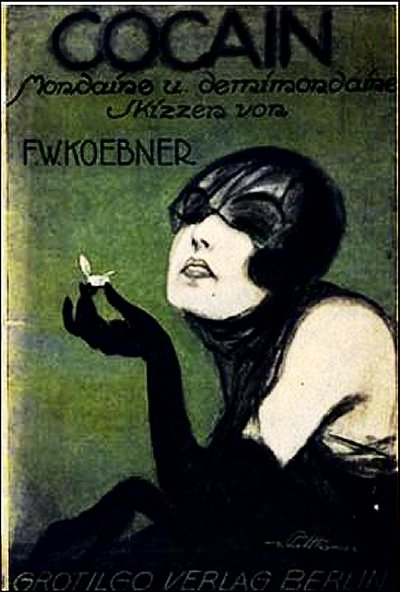
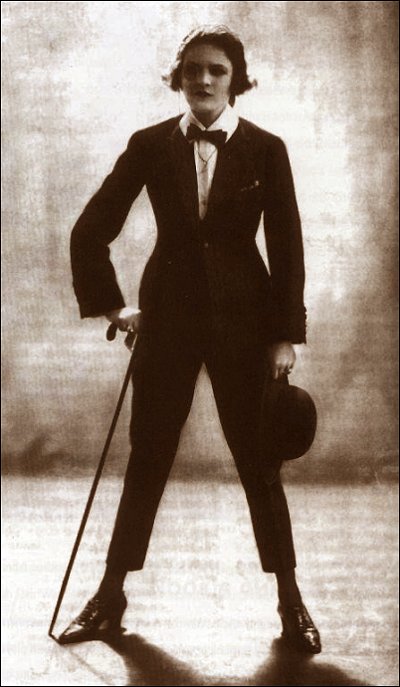
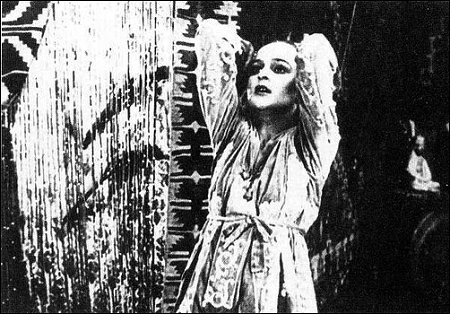
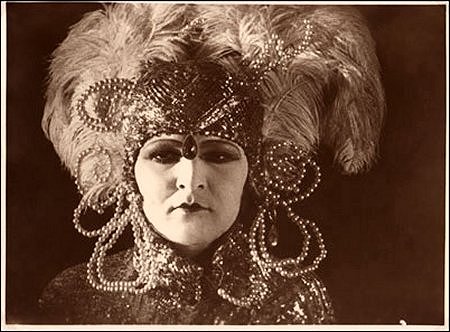
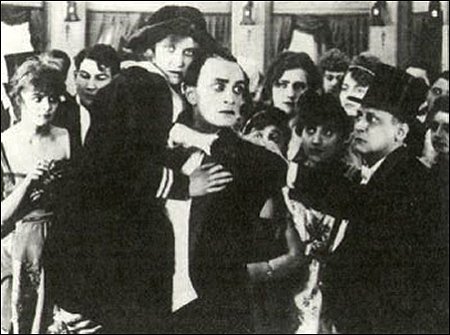

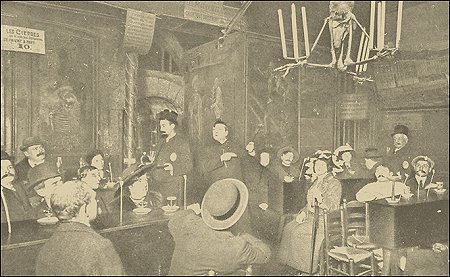
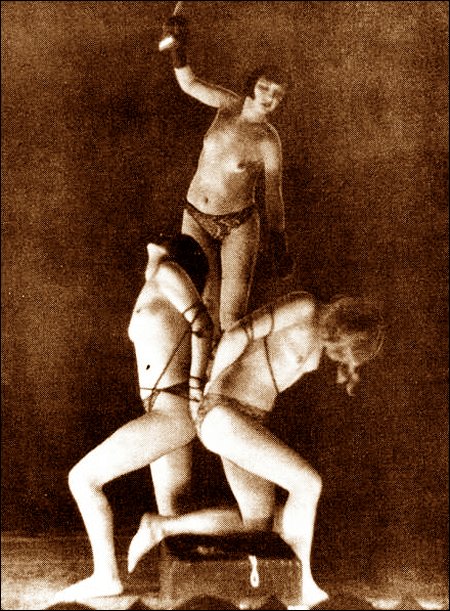

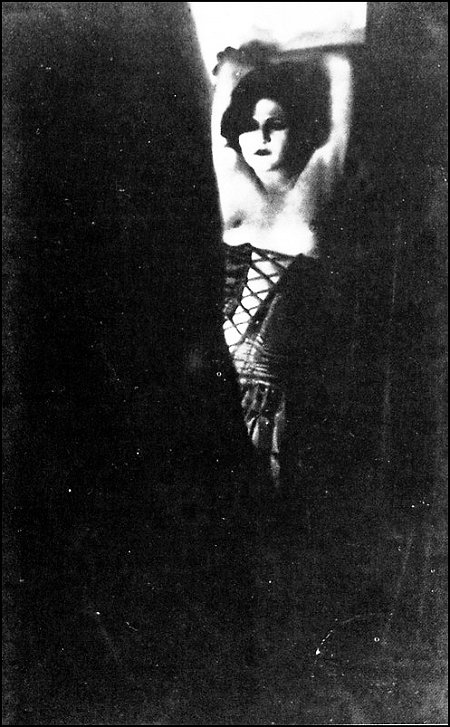
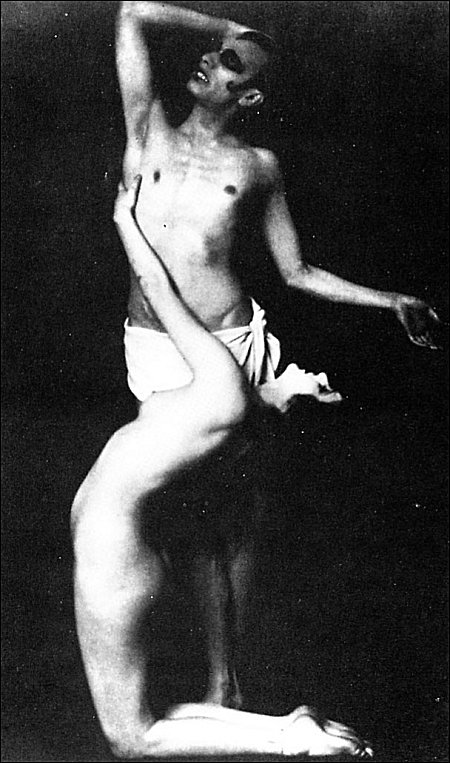
Galerie Anita Berber – 2
Anita Berber (1899-1928)
fleursdumal.nl magazine – magazine for art & literature
More in: Anita Berber, Anita Berber, Berber, Berber, Anita, DANCE & PERFORMANCE
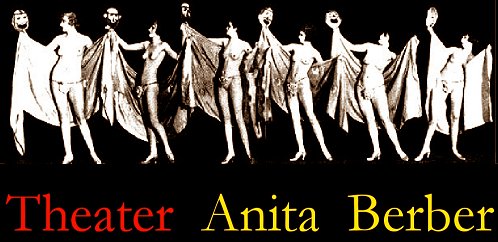
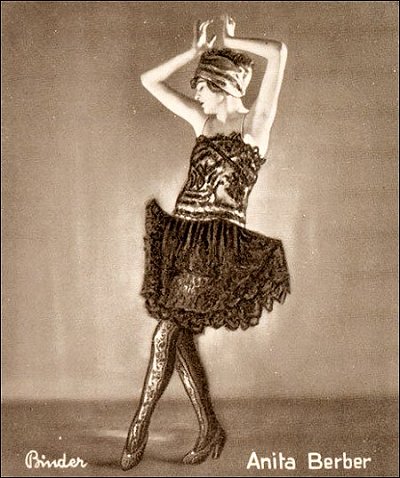
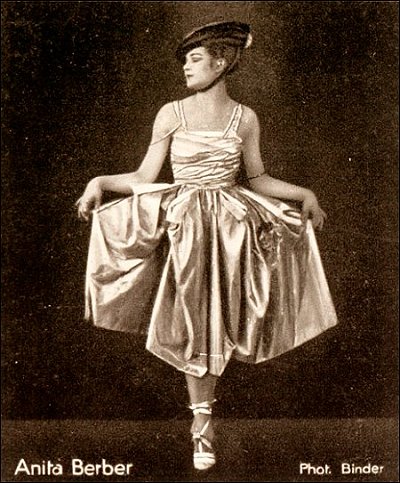
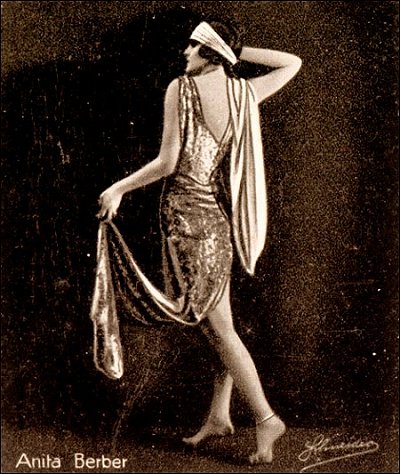
.jpg)
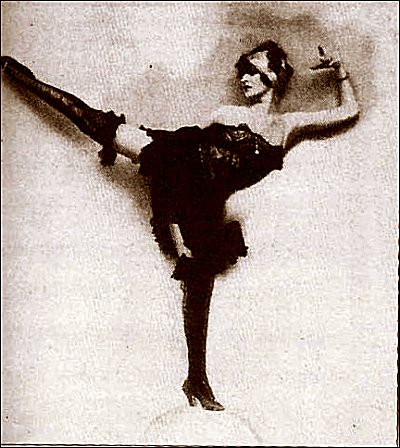
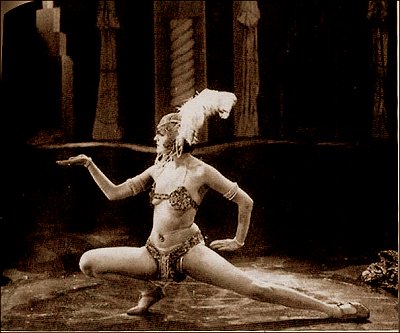
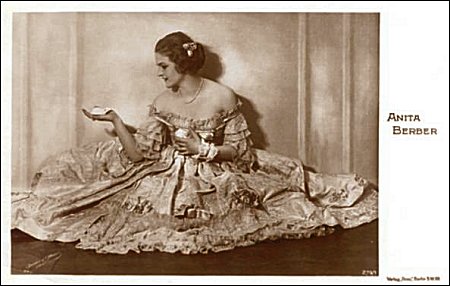
.jpg)
A n i t a B e r b e r
(1899-1928)
Anita Berber (June 10, 1899 – November 10, 1928) was a German dancer, actress and writer. Anita Berber was painted by many artists, among them Otto Dix. Her lover was dancer Sebastian Droste. In 1922, Berber and Droste published a book of poems, photographs, drawings: Kokain.
Berber’s cocaine addiction and bisexuality were matters of public chatter. She was allegedly the sexual slave of a woman and the woman’s 15-year-old daughter. She could often be seen in Berlin’s hotel lobbies, nightclubs and casinos, naked apart from a sable wrap and a silver brooch filled with cocaine. Besides being a cocaine addict, she was an alcoholic.
Anita Berber died of tubercolosis, at the age of 29, on November 10, 1928 in a Kreuzberg hospital and was buried at St. Thomas cemetery in Neukölln.
In 1987 Rosa von Praunheim made a film titled: Anita – Tänze des Lasters.
![]()
fleursdumal.nl magazine – magazine for art & Literature
More in: Anita Berber, Anita Berber, Berber, Anita, DANCE & PERFORMANCE

Jacques Perk
(1859-1881)
Zij Sluimert
Zij rust in ’t malsche mos, en houdt gebogen
Dien arm, dien mos en lokken beide streelen,–
Een sprei van groene schaduw, zacht bewogen,
Daalt uit de zilverloovers der abeelen;
Zij ademt zuchten, en zij lacht, als togen
Er droomen door heur ziel, die vroolijk spelen;
O, zoete hoop! Straks opent zij heure oogen,
Straks zal de hemel nieuwe heemlen telen:
Slaap zacht! Ik zie den donkren nacht genaken,
Dat gij uw oog voor eeuwig houdt geloken,–
Dan sluimert gij, maar kunt niet meer ontwaken:
Dan zal de zode, die gij dekt, ú dekken,
Dan zal geen zonnestraal uw lippen strooken,
Geen lied van ’t woud u uit dien sluimer wekken.–
• fleursdumal.nl magazine
More in: Archive O-P, CLASSIC POETRY, Jacques Perk

N o v a l i s
Georg Philipp Friedrich von Hardenberg (1772 – 1801)
Wenn in bangen, trüben Stunden
Wenn in bangen, trüben Stunden
Unser Herz beinah’ verzagt,
Wenn, von Krankheit überwunden,
Angst in unserm Innern nagt,
Wir der Treugeliebten denken,
Wie sie Gram und Kummer drückt,
Wolken unsern Blick beschränken,
Die kein Hoffnungsstrahl durchblickt:
O! dann neigt sich Gott herüber,
Seine Liebe kommt uns nah’:
Sehnen wir uns dann hinüber,
Steht sein Engel vor uns da,
Bringt den Kelch des frischen Lebens,
Lispelt Mut und Trost uns zu,
Und wir beten nicht vergebens
Auch für der Geliebten Ruh’.
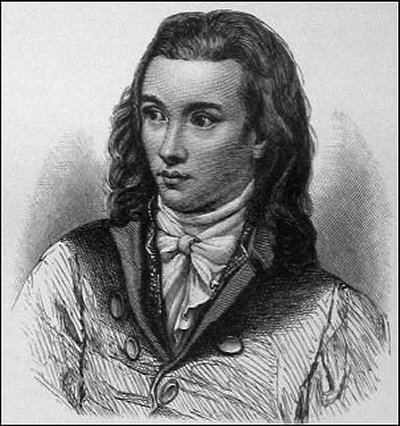
fleursdumal.nl magazine
More in: Archive M-N, Novalis, Novalis

John Keats
(London, 31 october 1795 – Rome, 23 february 1821)
La belle dame sans merci
Oh what can ail thee Knight at arms
Alone and palely loitering?
The sedge has withered from the Lake
And no birds sing.
Oh what can ail thee Knight at arms
So haggard, and so woe begone?
The Squirrel’s granary is full
And the harvest’s done.
I see a lily on thy brow
With anguish moist and fever dew,
And on thy cheeks a fading rose
Fast withereth too.
I met a Lady in the Meads
Full beautiful, a faery’s child,
Her hair was long, her foot was light
And her eyes were wild.
I made a garland for her head,
And bracelets too, and fragrant zone,
She look’d at me as she did love
And made sweet moan.
I set her on my pacing steed,
And nothing else saw all day long,
For sidelong would she bend and sing
A Faery’s song.
She found me roots of relish sweet,
And honey wild and manna dew,
And sure in language strange she said
I love thee true.
She took me to her elfin grot,
And there she wept and sigh’d full sore,
And there I shut her wild, wild eyes
With kisses four.
And there she lulled me asleep,
And there I dream’d, Ah! Woe betide!
The latest dream I ever dreamt
On the cold hill side.
I saw pale Kings, and Princes too,
Pale warriors, death pale were they all;
They cried, La belle dame sans merci,
Thee hath in thrall.
I saw their starv’d lips in the gloam
With horrid warning gaped wide,
And I awoke, and found me here
On the cold hill’s side.
And this is why I sojourn here
Alone and palely loitering;
Though the sedge is withered from the Lake
And no birds sing. . ..
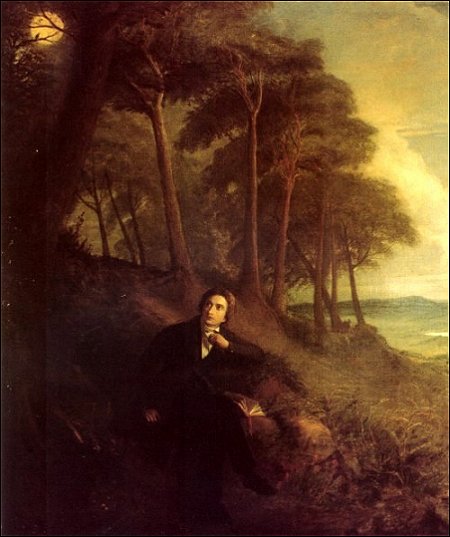

Ode to a nightingale
1
My heart aches, and a drowsy numbness pains
My sense, as though of hemlock I had drunk,
Or emptied some dull opiate to the drains
One minute past, and Lethe-wards had sunk:
‘Tis not through envy of thy happy lot,
But being too happy in thine happiness,–
That thou, light-winged Dryad of the trees,
In some melodious plot
Of beechen green, and shadows numberless,
Singest of summer in full-throated ease.
2
O, for a draught of vintage! that hath been
Cool’d a long age in the deep-delved earth,
Tasting of Flora and the country green,
Dance, and Provençal song, and sunburnt mirth!
O for a beaker full of the warm South,
Full of the true, the blushful Hippocrene,
With beaded bubbles winking at the brim,
And purple-stained mouth;
That I might drink, and leave the world unseen,
And with thee fade away into the forest dim:
3
Fade far away, dissolve, and quite forget
What thou among the leaves hast never known,
The weariness, the fever, and the fret
Here, where men sit and hear each other groan;
Where palsy shakes a few, sad, last gray hairs,
Where youth grows pale, and spectre-thin, and dies;
Where but to think is to be full of sorrow
And leaden-eyed despairs,
Where Beauty cannot keep her lustrous eyes,
Or new Love pine at them beyond to-morrow.
4
Away! away! for I will fly to thee,
Not charioted by Bacchus and his pards,
But on the viewless wings of Poesy,
Though the dull brain perplexes and retards:
Already with thee! tender is the night,
And haply the Queen-Moon is on her throne,
Cluster’d around by all her starry Fays;
But here there is no light,
Save what from heaven is with the breezes blown
Through verdurous glooms and winding mossy ways.
5
I cannot see what flowers are at my feet,
Nor what soft incense hangs upon the boughs,
But, in embalmed darkness, guess each sweet
Wherewith the seasonable month endows
The grass, the thicket, and the fruit-tree wild;
White hawthorn, and the pastoral eglantine;
Fast fading violets cover’d up in leaves;
And mid-May’s eldest child,
The coming musk-rose, full of dewy wine,
The murmurous haunt of flies on summer eves.
6
Darkling I listen; and, for many a time
I have been half in love with easeful Death,
Call’d him soft names in many a mused rhyme,
To take into the air my quiet breath;
Now more than ever seems it rich to die,
To cease upon the midnight with no pain,
While thou art pouring forth thy soul abroad
In such an ecstasy!
Still wouldst thou sing, and I have ears in vain–
To thy high requiem become a sod.
7
Thou wast not born for death, immortal Bird!
No hungry generations tread thee down;
The voice I hear this passing night was heard
In ancient days by emperor and clown:
Perhaps the self-same song that found a path
Through the sad heart of Ruth, when, sick for home,
She stood in tears amid the alien corn;
The same that oft-times hath
Charm’d magic casements, opening on the foam
Of perilous seas, in faery lands forlorn.
8
Forlorn! the very word is like a bell
To toll me back from thee to my sole self!
Adieu! the fancy cannot cheat so well
As she is fam’d to do, deceiving elf.
Adieu! adieu! thy plaintive anthem fades
Past the near meadows, over the still stream,
Up the hill-side; and now ’tis buried deep
In the next valley-glades:
Was it a vision, or a waking dream?
Fled is that music:–Do I wake or sleep?
Fancy
Ever let the Fancy roam,
Pleasure never is at home:
At a touch sweet Pleasure melteth,
Like to bubbles when rain pelteth;
Then let winged Fancy wander
Through the thought still spread beyond her:
Open wide the mind’s cage-door,
She’ll dart forth, and cloudward soar.
O sweet Fancy! let her loose;
Summer’s joys are spoilt by use,
And the enjoying of the Spring
Fades as does its blossoming;
Autumn’s red-lipp’d fruitage too,
Blushing through the mist and dew,
Cloys with tasting: What do then?
Sit thee by the ingle, when
The sear faggot blazes bright,
Spirit of a winter’s night;
When the soundless earth is muffled,
And the caked snow is shuffled
From the ploughboy’s heavy shoon;
When the Night doth meet the Noon
In a dark conspiracy
To banish Even from her sky.
Sit thee there, and send abroad,
With a mind self-overaw’d,
Fancy, high-commission’d:–send her!
She has vassals to attend her:
She will bring, in spite of frost,
Beauties that the earth hath lost;
She will bring thee, all together,
All delights of summer weather;
All the buds and bells of May,
From dewy sward or thorny spray
All the heaped Autumn’s wealth,
With a still, mysterious stealth:
She will mix these pleasures up
Like three fit wines in a cup,
And thou shalt quaff it:–thou shalt hear
Distant harvest-carols clear;
Rustle of the reaped corn;
Sweet birds antheming the morn:
And, in the same moment–hark!
‘Tis the early April lark,
Or the rooks, with busy caw,
Foraging for sticks and straw.
Thou shalt, at one glance, behold
The daisy and the marigold;
White-plum’d lilies, and the first
Hedge-grown primrose that hath burst;
Shaded hyacinth, alway
Sapphire queen of the mid-May;
And every leaf, and every flower
Pearled with the self-same shower.
Thou shalt see the field-mouse peep
Meagre from its celled sleep;
And the snake all winter-thin
Cast on sunny bank its skin;
Freckled nest-eggs thou shalt see
Hatching in the hawthorn-tree,
When the hen-bird’s wing doth rest
Quiet on her mossy nest;
Then the hurry and alarm
When the bee-hive casts its swarm;
Acorns ripe down-pattering,
While the autumn breezes sing.
Oh, sweet Fancy! let her loose;
Every thing is spoilt by use:
Where’s the cheek that doth not fade,
Too much gaz’d at? Where’s the maid
Whose lip mature is ever new?
Where’s the eye, however blue,
Doth not weary? Where’s the face
One would meet in every place?
Where’s the voice, however soft,
One would hear so very oft?
At a touch sweet Pleasure melteth
Like to bubbles when rain pelteth.
Let, then, winged Fancy find
Thee a mistress to thy mind:
Dulcet-eyed as Ceres’ daughter,
Ere the God of Torment taught her
How to frown and how to chide;
With a waist and with a side
White as Hebe’s, when her zone
Slipt its golden clasp, and down
Fell her kirtle to her feet,
While she held the goblet sweet,
And Jove grew languid.–Break the mesh
Of the Fancy’s silken leash;
Quickly break her prison-string
And such joys as these she’ll bring.–
Let the winged Fancy roam
Pleasure never is at home.

Lines on The Mermaid Tavern
Souls of Poets dead and gone,
What Elysium have ye known,
Happy field or mossy cavern,
Choicer than the Mermaid Tavern?
Have ye tippled drink more fine
Than mine host’s Canary wine?
Or are fruits of Paradise
Sweeter than those dainty pies
Of venison? O generous food!
Drest as though bold Robin Hood
Would, with his maid Marian,
Sup and bowse from horn and can.
I have heard that on a day
Mine host’s sign-board flew away,
Nobody knew whither, till
An astrologer’s old quill
To a sheepskin gave the story,
Said he saw you in your glory,
Underneath a new old-sign
Sipping beverage divine,
And pledging with contented smack
The Mermaid in the Zodiac.
Souls of Poets dead and gone,
What Elysium have ye known,
Happy field or mossy cavern,
Choicer than the Mermaid Tavern?

Robin Hood
To a friend
No! those days are gone away,
And their hours are old and gray,
And their minutes buried all
Under the down-trodden pall
Of the leaves of many years:
Many times have winter’s shears,
Frozen North, and chilling East,
Sounded tempests to the feast
Of the forest’s whispering fleeces,
Since men knew nor rent nor leases.
No, the bugle sounds no more,
And the twanging bow no more;
Silent is the ivory shrill
Past the heath and up the hill;
There is no mid-forest laugh,
Where lone Echo gives the half
To some wight, amaz’d to hear
Jesting, deep in forest drear.
On the fairest time of June
You may go, with sun or moon,
Or the seven stars to light you,
Or the polar ray to right you;
But you never may behold
Little John, or Robin bold;
Never one, of all the clan,
Thrumming on an empty can
Some old hunting ditty, while
He doth his green way beguile
To fair hostess Merriment,
Down beside the pasture Trent;
For he left the merry tale
Messenger for spicy ale.
Gone, the merry morris din;
Gone, the song of Gamelyn;
Gone, the tough-belted outlaw
Idling in the “grenè shawe;”
All are gone away and past!
And if Robin should be cast
Sudden from his turfed grave,
And if Marian should have
Once again her forest days,
She would weep, and he would craze:
He would swear, for all his oaks,
Fall’n beneath the dockyard strokes,
Have rotted on the briny seas;
She would weep that her wild bees
Sang not to her–strange! that honey
Can’t be got without hard money!
So it is: yet let us sing,
Honour to the old bow-string!
Honour to the bugle-horn!
Honour to the woods unshorn!
Honour to the Lincoln green!
Honour to the archer keen!
Honour to tight little John,
And the horse he rode upon!
Honour to bold Robin Hood,
Sleeping in the underwood!
Honour to maid Marian,
And to all the Sherwood-clan!
Though their days have hurried by
Let us two a burden try.
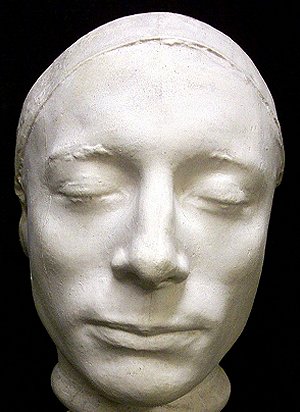
Ode on melancholy
1
No, no, go not to Lethe, neither twist
Wolf’s-bane, tight-rooted, for its poisonous wine;
Nor suffer thy pale forehead to be kiss’d
By nightshade, ruby grape of Proserpine;
Make not your rosary of yew-berries,
Nor let the beetle, nor the death-moth be
Your mournful Psyche, nor the downy owl
A partner in your sorrow’s mysteries;
For shade to shade will come too drowsily,
And drown the wakeful anguish of the soul.
2
But when the melancholy fit shall fall
Sudden from heaven like a weeping cloud,
That fosters the droop-headed flowers all,
And hides the green hill in an April shroud;
Then glut thy sorrow on a morning rose,
Or on the rainbow of the salt sand-wave,
Or on the wealth of globed peonies;
Or if thy mistress some rich anger shows,
Emprison her soft hand, and let her rave,
And feed deep, deep upon her peerless eyes.
3
She dwells with Beauty–Beauty that must die;
And Joy, whose hand is ever at his lips
Bidding adieu; and aching Pleasure nigh,
Turning to poison while the bee-mouth sips:
Ay, in the very temple of Delight
Veil’d Melancholy has her sovran shrine,
Though seen of none save him whose strenuous tongue
Can burst Joy’s grape against his palate fine;
His soul shall taste the sadness of her might,
And be among her cloudy trophies hung.
John Keats: La belle dame sans merci & other poems
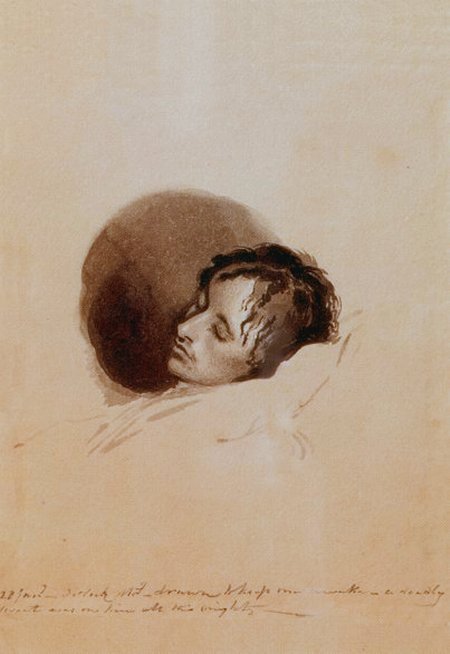
fleursdumal.nl magazine
magazine for art & literature
More in: John Keats, Keats, John
Thank you for reading Fleurs du Mal - magazine for art & literature